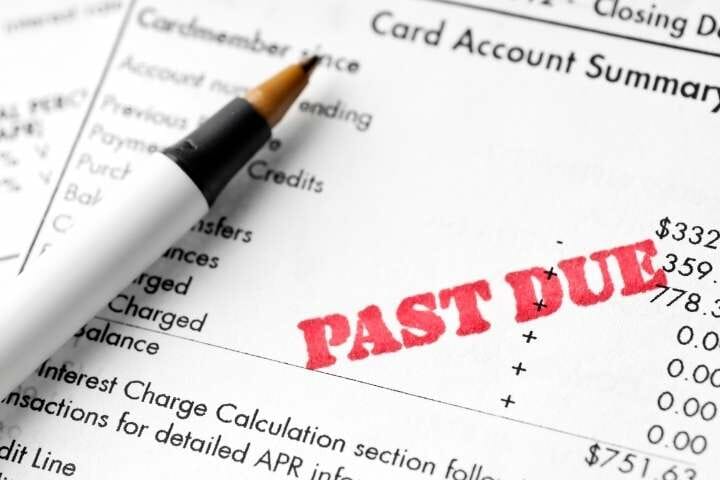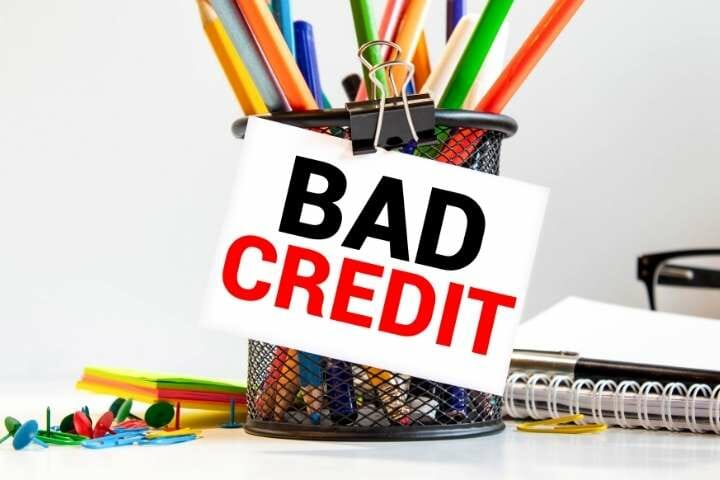Getting into debt is just a fact of life for many people, and it can take years to pay it off.

If you don’t pay your credit card debt most people can have their wages garnished until the debt is paid in full. When you receive social security disability pay the funds are limited, and there isn’t as much extra as when someone is employed.
So, if you have credit card debt that hasn’t been paid and you receive social security disability can it be garnished until it’s paid? Here’s what you need to know.
Social Security Disability And Debt
When someone needs some extra help, social security disability benefits can be a huge help to just being able to get basic needs met and being able to buy groceries.
When you apply for these benefits, if you have outstanding debts that haven’t been paid there are certain types of benefits that could be seized or garnished from a bank account.
For this reason, it’s important to understand which benefits fall into this category and which do not.
Social Security Disability Insurance
This is a program run by the government to provide financial assistance to disabled individuals who are unable to work due to their disability.
People who receive this benefit must have paid Social Security FICA taxes through their employment taxes, and so the benefits that any individual receives under this program will based on the credits earned through working.
For this type of benefit, it cannot be garnished or seized by creditors collecting on credit card debt, mortgages or auto financing.
It is important to note that this kind of benefit can be garnished by the federal government when it comes to paying for past due property taxes, child support, alimony or federal student loans. This benefit can also be seized by a court order for victims restitution.
Now any financial institution has legally obligated to do a thorough and complete investigation before they freeze anyone’s bank account to comply with a garnishment order.
You might like to read: Tips for Older Adults to Avoid Debt When Using a Credit Card
Supplemental Security Income
This is also a program that helps provide financial assistance to disabled individuals who cannot work due to their disability, however for this program people who are receiving benefits do not have to have paid into employment taxes. Individuals who have limited income or assets will qualify for this program.
When someone is on this program, neither creditors nor the federal government can garnish the benefits to satisfy unpaid debts.
Unique Circumstances
The regulations outlined here are general guidelines that most people will fall into when receiving this type of benefit.

There will always be specific circumstances and some jurisdictions will offer additional protections against unpaid debts.
Other protected types of income
There are a few other types of income that are protected against garnishment from creditors, including
- Veteran’s benefit
- Federal Employee Retirement System
- Civil Service Retirement System
- Federal Railroad Retirement, Unemployment and Sickness Benefits
If debt collectors know that these sources of income are your only form of income, not only can they not garnish them but they cannot even threaten to garnish these wages from you.
If they threaten to garnish this income they may be in violation of Fair Debt Collection Practices Act, which can have financial consequences for the company.
You might like to read: Best Credit Cards For Seniors With Bad Credit
Can Child Support Payments Be Taken From Social Security?
For the vast majority of cases, yes child support payments can be taken from social security payments if the person receiving the benefits are behind on their payments.
There will be a few very rare exceptions, but being behind on child support payments can be garnished from any kind of income is almost certain. There aren’t any forms of income that are protected from delinquent child support payments,
If you need to work out a payment plan so that your income isn’t completely garnished, you will need to contact a lawyer to determine what your options are. You may be able to work something out before the court orders a garnishment.
Other Ways For Creditors To Get Their Money

When it comes to collecting on debt creditors are going to do everything they can to ensure they get their money back.
If they can’t garnish your wages due to the source of income then they may start to look for other ways in which they can receive payment for the credit they extended to you.
Reporting To Credit Bureaus
When you make late payments or have charge-offs on your credit report, it can lower your credit score. This can make it harder for you to get new credit from other sources.
Putting A Lien On Your House Or Any Property Owned
When you don’t pay your credit cards or other debts on time then your creditors may sue you in court to get a judgement against you.
If they get a judgement against you they may put a lien against any property you own. This lien will not force you to sell your home or other property, however what it does mean is that when you do sell it (or pass away) the creditor will get the amount they are owed out of the proceeds of the sale.
This can make it very difficult to refinance or renew a mortgage when it comes due to do so. If you cannot refinance or renew then this could force you to sell your home, but the lien alone will not force you to do it.
You might like to read: Long Term Disability Vs Long Term Care
Court Order To Seize Other Funds
Even though they know that your main source of income is from social security benefits, a creditor could seek a court order to seize any income that is non-government funds when deposited into your bank account.
It would be up to you to prove to the court that the money in question did not come from social security benefits, otherwise the creditor could get a court order to take it.
As long as you receive your social security benefits via direct deposit, a bank is required to protect two months worth of this income from garnishment. This means you will still have some money in your account that is accessible to you but if you have funds that are not from social security they could be taken from you with this court order.
Taking Your Tax Refund
If you get an income tax refund when you file your taxes, this could be taken from you by creditors.

The ability to take these funds will depend on the state you live in, but in all states your income tax refund can be taken by the federal government for things like past taxes and delinquent child support.
How To Deal With Creditors
When you’re in over your head with finances it can feel like ignoring the problem is the best option. You don’t have the funds to pay back what you borrowed anyways, right?
Well this is really only temporary and it may make things worse in the end if you don’t deal with the situation head on.
Instead of pretending like the debt doesn’t exist, you will be better off trying to figure out a way to deal with it and get it paid off so you don’t have it hanging over your head.
Check Your Budget
Those who are living on social security benefits likely already have a very tight budget, that’s why they became delinquent on their payments to begin with. Even so, it could be beneficial to take a look at your income and see if there are any areas you can cut back and work at to try and free up some cash.
Any extra cash you can find could go towards paying off this debt – even if it’s just a little bit at a time.
You might like to read: An Overview Of Government Benefits For Seniors
Contact A Credit Counselor
If you can afford to pay something on your debt each month then it might be beneficial to talk to a credit counselor.
Make sure you contact someone who is qualified, but also someone who is non-profit. There are credit counseling companies out there who are will take a fee or charge you to help you with this.
A credit counselor will be able to look at your financial situation and help you set up a debt management plan so that you can get your debt paid off. This plan will consolidate your debts into one, manageable monthly payment. You will make this payment to the credit counselor and they will then disperse to your creditors.
In addition to coming up with this plan, your credit counselor may be able to contact your creditors to get some of the interest removed from your debt so you are just paying on principle. Each situation will be different, so you will have to ask your credit counselor which options you have when it comes to paying back your debt.

Filing For Bankruptcy
This option should not be taken lightly, and it should really only be considered if there are legitimately no other options for getting out of debt.
Post-bankruptcy you may run into issues with getting credit or even finding a house to rent or lease that will work with those who have filed bankruptcy. There are consequences to doing this, and you should speak with a licensed insolvency trustee to understand what this option entails before going forward with it.
Further, not all debts will be covered in a bankruptcy. For example, if you owe back taxes to the IRS a bankruptcy does not get rid of those. Federal student loans and past due child support are also not covered. To make sure this is the right option for you, make sure you speak with a professional.
Getting out of credit card debt can be tough, however if you are receiving social security the good news is that they cannot garnish your wages so your income is protected. Your creditors may take legal action against you, however. If possible, reach out to you creditors to work out a payment plan so they won’t take legal action and try to collect on what’s owed to them.
